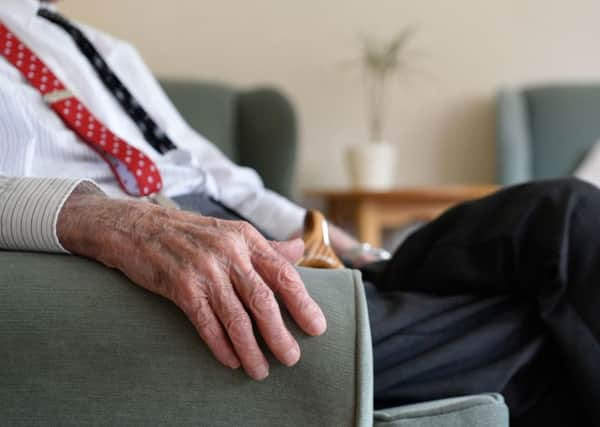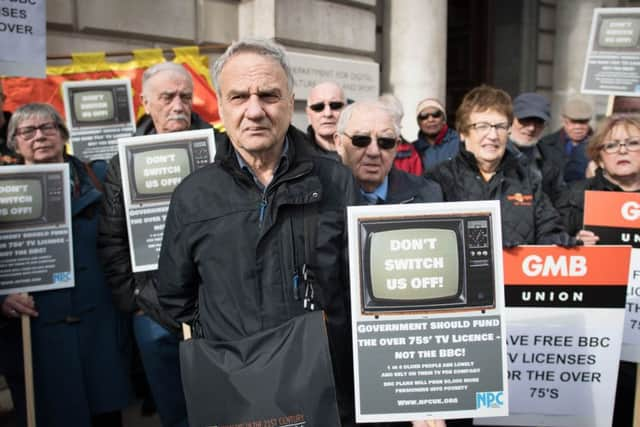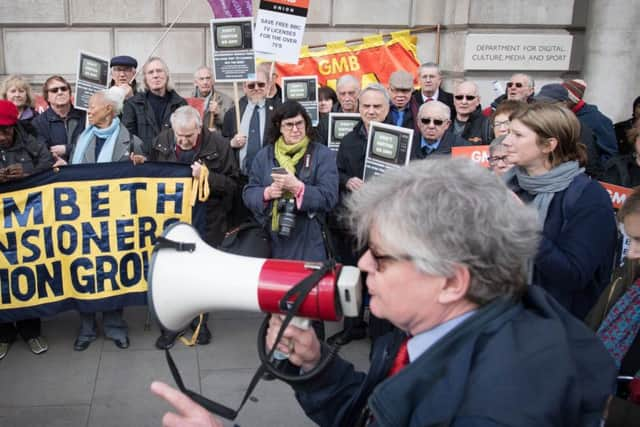Time to put OAPs before celebrity presenters in BBC licence fee and pay row – Jayne Dowle


Is it right that I should be struggling to find £154.50 a year to watch my soaps and the Antiques Roadshow when he’s coining in £1.75m a year for talking about football?
Advertisement
Hide AdAdvertisement
Hide AdIs it fair that he should be paid such an extortionate sum of money to wear a nice suit and chat with his friends in a warm studio, while I sit huddled over one radiator all winter to keep fuel costs down?


And is it acceptable that the government, although they promised to keep the licence fee free for over-75s, seems powerless to do anything about it?
Advertisement
Hide AdAdvertisement
Hide AdActually, I do like football. However, the revelation in the Corporation’s annual report that the former England footballer is the most highly-paid of a long list of well-remunerated BBC ‘stars’ couldn’t have come at a more timely moment. While millions of over-75s look set to lose their entitlement to a free licence, with the prospect of paying up or facing criminal prosecution, something doesn’t quite add up.


Both the Government and BBC blame each other after George Osborne, the then Chancellor, decided to phase out the subsidy by 2020, leaving the BBC with a £745m annual bill if it maintains free licences for all over-75s.
However, the 2017 Tory general election manifesto agreed that a Conservative government would keep them in place. This was reiterated when the BBC agreed its new charter with the Government, writing in stone its future responsibility for delivery of free licences, until the wage bills started mounting up in the name of retaining ‘talent’.
Advertisement
Hide AdAdvertisement
Hide AdAnd this brings us to the current impasse. In the face of commercial competitors such as Netflix and Sky, the BBC still tries to portray itself as the broadcaster we can trust.
Yet what seems to be entirely escaping the notice of both BBC bigwigs, such as director-general Tony Hall and the Department for Digital, Culture, Media and Sport, is that television for older people is about more than just another bill to pay. For many, it provides a lifeline to the outside world, a friend and companion and a source of important information and advice.
Clearly, those who justify the decision to phase out free licences for all but people on the most-meagre incomes – those receiving Pension Credit – have never spent much time with an older person who may be house-bound and/or doesn’t receive many visitors.
They may raise their well-groomed eyebrows, but this person will probably set their watch by the lunchtime and evening news, recite the names of all the presenters (and the weathermen and women) and know more about the families on Coronation Street and Emmerdale than the producers themselves.
Advertisement
Hide AdAdvertisement
Hide AdThey may also enjoy interesting programmes (not just the Antiques Roadshow) on nature and the environment, history and consumer issues, relish a good costume drama and watch tennis, golf, snooker and yes, football. In this way, they keep their minds active and well-informed and their knowledge up to date.
In my experience, many people in this situation didn’t ask to rely on the television to keep them occupied, informed and entertained – it is just the circumstances of their life.
If they are not frail or ill themselves, they may be caring for a person who is and find that life is predicated by their responsibilities, essential shopping trips and accompanying their husband or wife on medical appointments.
Yet it is a symptom of our society that no-one with the power to do anything about it seems to really understand.
Advertisement
Hide AdAdvertisement
Hide AdWhat we must do is to separate the sentiment and the hard economic facts. Independent Age, the older people’s charity, estimates that at least 1.3 million pensioners might not be receiving the benefits, including Pension Credit, which they are entitled to. So, it makes sense for over-75s to find out if they are missing out.
In addition, there are some pensioners who are lucky enough to benefit from a generous occupational scheme which means that their retirement years are more comfortable then most. To them, £154.50 a year may not be as much of a stretch as it is for other and there must be a way for the HMRC to work this out, much in the same way as it does with withdrawing Child Benefit from parents who earn £50,000 or more a year.
And then there are the countless over-75s who sit somewhere in the middle. Why don’t the clever people at the Treasury work out a sliding scale of affordability which takes into account the very different circumstances of individuals?
There are solutions, but they would require compromise and negotiation. Two qualities which neither self-aggrandising BBC bosses or self-seeking politicians seem to possess in any useful amount. Time to put the people first, I say.